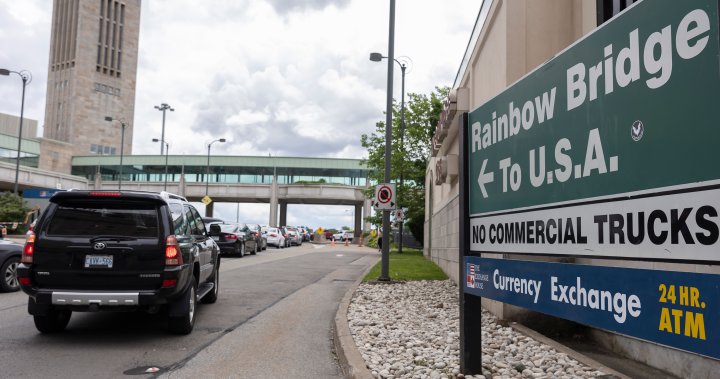Jobs
Conservative leader wants Canada to match U.S. tariffs on Chinese electric vehicles | CBC News
Conservative Leader Pierre Poilievre has added his voice to those calling on the federal government to slap tariffs on Chinese electric vehicles and associated parts.
President Joe Biden announced in May that the U.S. would be imposing a new 100 per cent tariff on Chinese electric vehicles (EVs). Washington is also imposing tariffs on Chinese-made advanced batteries, solar cells, steel and aluminium used for EVs.
Industry players have been putting pressure on the federal government to match those tariffs. Poilievre held a press conference in Hamilton, Ont. on Friday to add his support.
“[China has] massively subsidized steel, aluminum and EV industries. They’re doing this with the goal of crushing our steel, our aluminum and our automotive production and taking our jobs away,” he said.
Federal Conservative Leader Pierre Poilievre says he supports import taxes on goods made in China. CBC senior reporter Janyce McGregor breaks down the possible economic implications for Canadians.
Poilievre also took aim at Prime Minister Justin Trudeau by suggesting that the government has “failed to protect workers” by not imposing tariffs on Chinese EVs, parts, steel and aluminum.
General Motors, vehicle manufacturers associations and the Ontario government have all said in recent months that Canada needs to act in concert with the U.S. on Chinese EVs and associated parts.
On Thursday, the heads of the Aluminium Association of Canada and the Canadian Steel Producers Association called for a minimum 25 per cent tariff on Chinese aluminum and steel coming into Canada.
A spokesperson for Deputy Prime Minister and Finance Minister Freeland said Poilievre’s announcement was an attempt to “repackage” the government’s own position, though the Liberals have yet to say what they’ll do to respond to Beijing’s trade practices in the EV sector.
Freeland held consultations throughout the month of July to look at the EV issue. When she announced the launch of those consultations, Freeland said she would consider “all possible tools,” including tariffs.
“Poilievre is two months late to the conversation and is showing his hypocrisy, given his long anti-union record and continuous efforts to delay the implementation of the government’s major investment tax credits, which are essential to securing Canada’s auto sector’s competitiveness,” Katherine Cuplinskas, Freeland’s deputy director of communications, said in an email on Friday.
Cuplinskas said that a decision based on Freeland’s consultations will be made “soon.”
On Friday, Polievre also took aim at the government’s rebate policy, introduced to encourage Canadians to switch to EVs. The government offers rebates up to $5,000 to those who buy or lease an EV.
“[Trudeau] is giving out rebates for people to buy Chinese-made cars,” Polievre said.
While China is not the biggest supplier of cars to the Canadian market, Freeland’s consultations did include discussions about adjusting the federal rebate program.
China is a big player in Canada in the manufacture of batteries and battery components for EVs — industries that federal and provincial governments have invested in heavily over the last four years.
In 2021, almost 80 per cent of all lithium-ion batteries for electric vehicles globally came out of China. The International Energy Agency says almost 60 per cent of EVs sold around the world are Chinese-made.
Conservatives making a play for union voters
Poilievre’s call for tariffs comes as the Conservatives have intensified efforts to gain support from union workers, many of whom have traditionally supported New Democrats.
Poilievre’s Friday press conference was held at the local Stelco plant, a Hamilton-based steelmaker. The United Steelworkers union — which represents 2,000 Stelco workers — was one of the founding members of the NDP. The union still encourages its members to support the NDP.
In September, the Tories are hoping to swing the Winnipeg riding of Elmwood-Transcona, an NDP stronghold.
In that byelection, Conservatives are running Colin Reynolds, a local union member, as their candidate. The New Democrats picked as their candidate Leila Dance, a community leader. The two candidates have been locked in a battle to garner endorsements from local unions and labour leaders.










